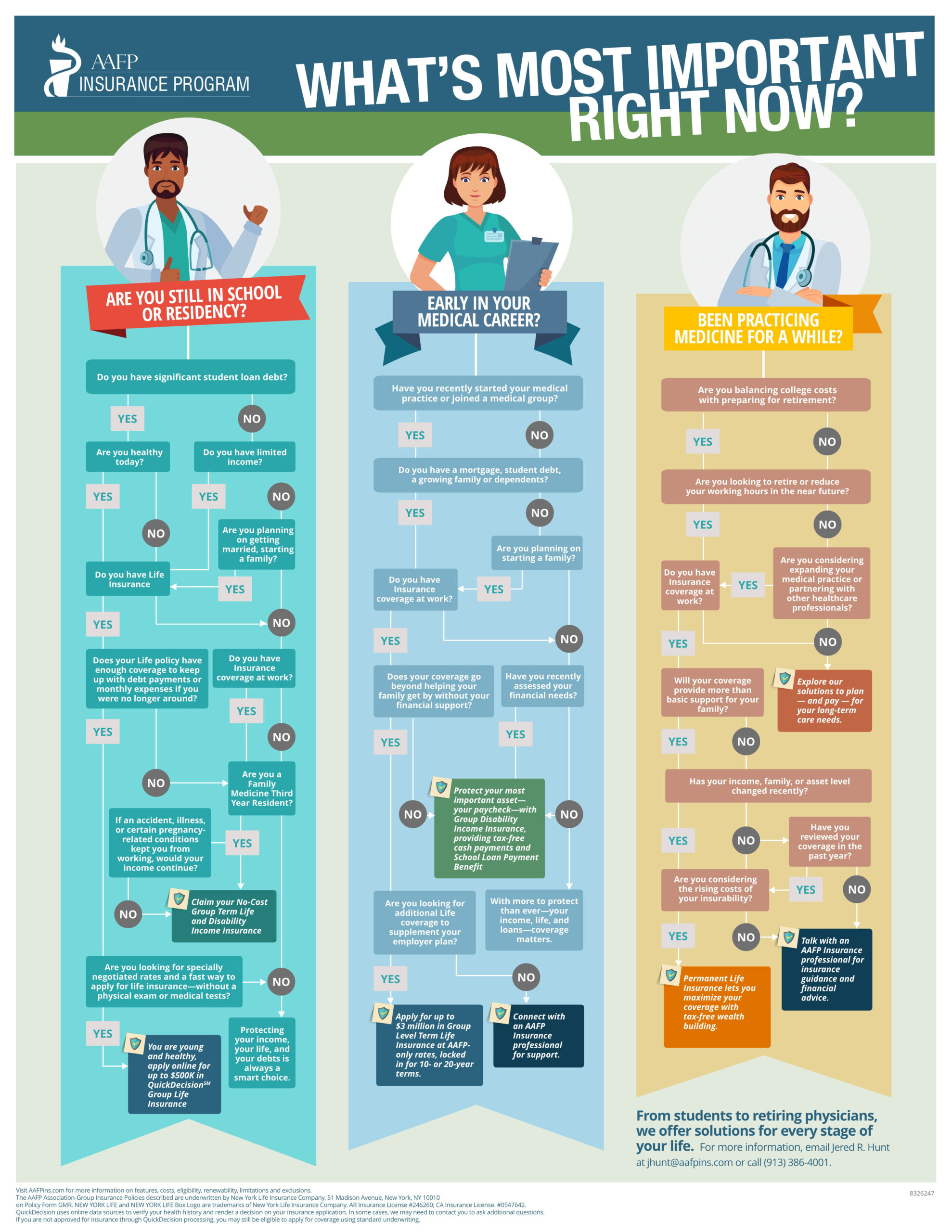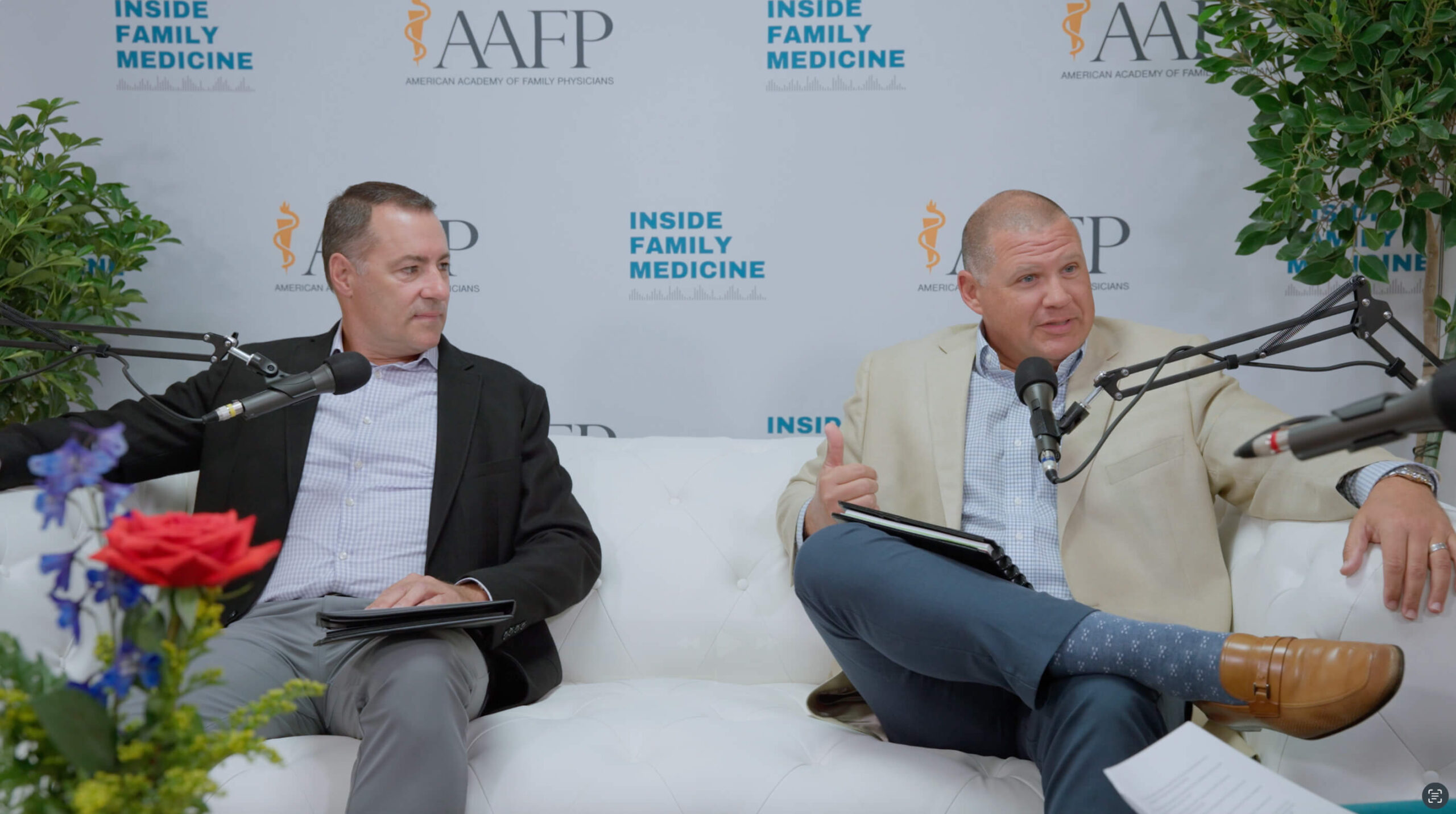 Whether or not you, your family members or friends have contracted the coronavirus, the events of the last few months have driven home the fragility of life and the importance of being prepared. As a physician, you have been in the thick of the current pandemic, seen how quickly the danger can spread and how a family can be devastated.
Whether or not you, your family members or friends have contracted the coronavirus, the events of the last few months have driven home the fragility of life and the importance of being prepared. As a physician, you have been in the thick of the current pandemic, seen how quickly the danger can spread and how a family can be devastated.
You’ve worked long hours to care for others, and there’s no doubt you’ve been concerned about the health and financial security of your family. The pandemic has necessitated shutting down many activities outside the home, closing non-essential businesses and sheltering in place as much as possible. It has not only put our health at risk but also left many without a paycheck for months.
And that’s not all. Even now, as the rates of infection appear to be slowing, there’s much unknown in our future. What will the “new normal” look like? Will the virus return in the fall, as some speculate? What do you need to know to be fully prepared?
Insurance is one issue that may be on your mind. If you have life insurance, you may be wondering if you’re covered and whether your family is protected should coronavirus take your life. If you don’t have life insurance or have been procrastinating about changing or increasing your policy, you may wonder whether you can get what you need during the pandemic.
Here’s what you need to know about life insurance in the age of coronavirus and what you can do to ensure you and your loved ones are fully protected.
If You Already Have Term or Whole Life Insurance
If you have life insurance, the chances are good that you are fully covered. Reputable insurance companies plan for major disasters, serious flu seasons and even pandemics; they build the costs of these risks into their premium pricing and investment strategies.
There are only three reasons that your family might not receive death benefits should something happen to you:
-
- Inaccurate or incomplete information: If you were not completely honest or accurate when you applied for life insurance and you’re found out, your policy could be immediately canceled, and your beneficiaries could be denied payment.Information that could result in a canceled policy includes omissions of pre-existing health conditions (e.g., heart disease or COPD), family medical history, risky lifestyle habits (e.g., smoking or heavy drinking) and travel to remote and dangerous parts of the world. Honesty is the best policy. Insurance companies investigate your application during the two-year life insurance contestability period. If they discover that you lied about a medical condition, this can be considered fraud—even after the two years—and your beneficiary’s claim could be denied. Also, while you may not have to account for every vacation, if you volunteer with a program like Doctors Without Borders that puts you in contact with sick people around the world, you need to include that in your application.
- Failure to make premium payments: Should you ever struggle to pay your premiums or fall behind, you should immediately contact your insurance agent or carrier. Insurers do offer a grace period (typically 30 days), but beyond that, you risk losing your insurance or having it suspended temporarily.During the current COVID-19 pandemic, most insurers are allowing for late payments and extending their grace period up to 90 days. But don’t assume you’re covered under the extended grace period. Contact your agent if you need help.
If You Need to Apply for Life Insurance
If you have a family and especially if you have a mortgage, business loan or outstanding debts, it shouldn’t take the current coronavirus pandemic to spur you to get life insurance. However, if you decide you need life insurance now, don’t panic. Insurers are still accepting applications, and you have several options.
You should act immediately. Few insurers have had time to make any long-term changes to their policies or premiums. Also, if you haven’t yet contracted COVID-19, this is the best time to apply for your life insurance policy.
So what can you expect or experience when applying for life insurance during coronavirus?
-
- Possible postponement or waiting period
If you or a close family member are planning a trip outside the United States, you may be required to postpone your application until after the trip, and you have tested negative for the virus.
- Possible postponement or waiting period
-
- Testing requirements
The insurer may want to know if you are negative for the virus. If you have not tested positive, then you can proceed. If you do test positive, you may be required to postpone your application until you have fully recovered.
- Testing requirements
-
- Honesty
Again, be honest and forthright about any risks, pre-existing conditions, family medical history or travel. You don’t want the truth to come out later and possibly jeopardize your beneficiaries. - Look for a no-exam policy
If you are no older than your fifties and in good health, you may be approved quickly for a policy that doesn’t require an in-person medical exam. Be aware, however, that no-exam policies usually offer lower coverage and have slightly higher premiums.
- Honesty
-
- Medical professionals are taking proactive precautions
If you are older or have a medical condition, you may need a medical examination. As a physician yourself, you know that everyone in the medical profession is taking precautions to protect themselves and their patients. You can have an insurance exam without putting yourself at risk.
- Medical professionals are taking proactive precautions
-
- Shop around
There are many options available, so take the time to talk with several carriers or work with an independent broker. While it is always easier to get life insurance when you are young and healthy, older people are eligible. They may, however, have fewer options and pay higher premiums.
- Shop around
-
- Get immediate coverage
If you want a quick turnaround, you can ask about accelerated underwriting. It’s a quick solution for applicants who are young and in good health.
- Get immediate coverage
Pandemic or not, if there are people in your life who will be financially devastated by your death, and you should have life insurance in place to protect them. If you are already covered, COVID-19 shouldn’t change anything. If you do not have life insurance, the time to act is now.




